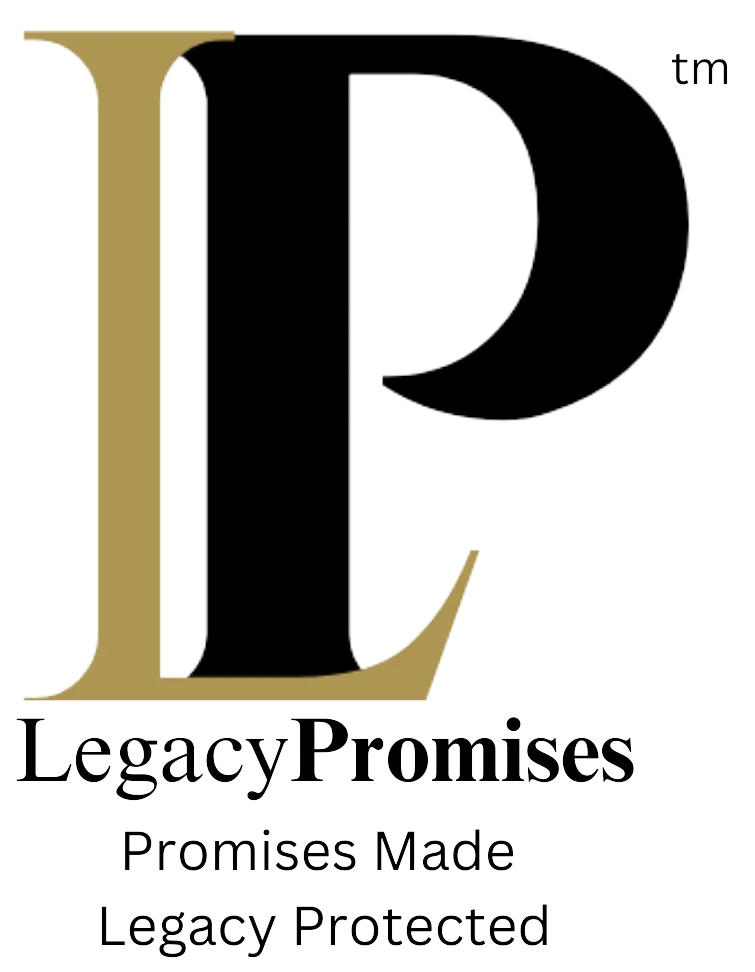

BUILD A LEGACY!
BUILD A LEGACY!

Starting Your Legacy Plan Shouldn’t Be Hard or Expensive

Estate Planning
You don’t need to spend a fortune or deal with complicated processes to protect your home and assets.

Asset Protection Planning
Protecting your property from risks like lawsuits or debt can be straightforward and affordable.

Legacy Planning
Building a legacy that reflects your values is essential, and it shouldn’t come with a hefty price tag.

Starting Your Legacy Plan Shouldn’t Be Hard or Expensive

Estate Planning
You don’t need to spend a fortune or deal with complicated processes to protect your home and assets.

Asset Protection Planning
Protecting your property from risks like lawsuits or debt can be straightforward and affordable.

Legacy Planning
Building a legacy that reflects your values is essential, and it shouldn’t come with a hefty price tag.




NOT having a living trust could leave your family at risk.
Procrastinating could mean your family will have to go through probate, risking thousands of dollars and potentially years tied up in court.

NOT having a living trust could leave your family at risk.
Procrastinating could mean your family will have to go through
probate, risking thousands of dollars
and potentially years tied up in court.
Why a Living Trust Could Be Right for You
Avoid probate, saving time, money, and keeping things private.
Designate trusted individuals to make decisions if you are unable

Protect your family’s future with clear instructions for your assets and healthcare
Prevent family conflicts and ensure your wishes are respected
Why a Living Trust Could Be Right for You
Avoid probate, saving time, money, and keeping things private.
Designate trusted individuals to make decisions if you are unable.

Protect your family’s future with clear instructions for your assets and healthcare.
Prevent family conflicts and ensure your wishes are respected.
Checklist for Updating Your Estate Plan
As life changes, so should your plan. Update your plan to stay on track.
Keep your documents current to avoid challenges in court.
Review your plan every 2 years and update it every 5 years to keep it accurate.
Let's Keep Your Plan Updated to Keep It Effective
As life changes, so should your plan. Update your plan to stay on track.
Keep your documents current to avoid challenges in court.
Review your plan every 2 years and update it every 5 years to keep it accurate.

No More Worries —
We’ll Help You Every Step of the Way

Legally sound documents

Organized and Ready

Quick Review
Process

100% attorney-guided process

Customized Estate Plans

Easily share your plans with others
Say Yes, And We'll Help You Protect
What You’ve Worked Hard For
Tell Us About Yourself & We'll Match You With A Plan

I have children under 18

I own a home or other property

I want to outline my health care wishes

I have assets over $180,000

I'm married

I own a business

I want to leave gifts for individuals or charities

I’d like to consult with an attorney

I want expert guidance while creating my plan

I want to exclude people from receiving my assets

No More Worries —
We’ll Help You Every Step of the Way

Legally sound documents

Easy to update when life changes

Digital and Printed Document Shipping

100% attorney-guided process

Customized Estate Plans

Easily share your plans with others
Say Yes, And We'll Help You Protect
What You’ve Worked Hard For
Tell Us About Yourself & We'll Match You With A Plan

I have children under 18

I own a home or other property

I want to outline my health care wishes

I have assets over $180,000

I'm married

I own a business

I want to leave gifts for individuals or charities

I’d like to consult with an attorney

I want expert guidance while creating my plan

I want to exclude people from receiving my assets
KEEPING YOU INFORMED

Living Trust vs. Will: Which Is Right for Your Family?
You’ve spent a lifetime building memories, savings, and a home, so give your family the gift of certainty, not confusion, when it’s time to settle your affairs.
Imagine your loved ones waking up one morning to find everything already mapped out: who gets the heirloom watch, where the savings go, and how your spouse or children are cared for, without a judge’s gavel or months of paperwork.
Estate planning usually comes down to two main choices:
A Will, the simple “instruction letter” you leave behind
A Living Trust, the sealed envelope of assets that passes directly to heirs
But what are they and what do you actually need? Let’s break down exactly what each does (and doesn’t) do.
What Is a Will?

Think of a will as a letter that answers one question: “Who gets my stuff?” In it, you name beneficiaries for your home, bank accounts, family keepsake, choose guardians for any children under 18, and/or appoint an executor to carry out your wishes.
Pros of a Will:
Fast to set up—often just one document and a few hundred dollars
Easy to update as your life changes
Cons of a Will:
Probate required: the court process that verifies your will can tie up assets for 12–20 months and cost 3–7% of your estate
Public record: anyone can look up what you owned and who inherits it
What Is a Living Trust?

A living trust is like sealing your assets in an envelope with clear instructions on who opens it, and when. You:
Draft the trust document naming yourself as trustee (you stay in control)
Retitle assets. Your house, investments, bank accounts into the trust’s name
Name a successor trustee to step in if you pass away or can’t manage your affairs
Pros of a Living Trust
Bypasses probate entirely. Assets transfer directly, privately, often within weeks.
Built-in incapacity planning. Your successor trustee manages everything if you can’t.
Keeps details private. Trust terms don’t become public record
Cons of a Living Trust
Higher upfront cost. Typically $1,000–$2,500 to set up
More paperwork. You must remember to retitle each asset into the trust
How They Differ

Comparison of Wills and Living Trusts
Key differences in court process, privacy, setup effort, cost, and incapacity planning.
Why You Can’t Wait
Every day you delay is a gamble with your family’s future. Life can turn in a heartbeat, and without a will or trust, the people you care about are left to navigate courtrooms, legal fees, and state decisions that may go against everything you wanted.
Probate isn’t just slow. It can eat away thousands of dollars, drain your assets, and drag on for over a year, all while your family is grieving.
The truth is waiting doesn’t protect anyone. It only leaves them exposed. The sooner you plan, the sooner you replace uncertainty with security.
Take the Next Step
“Hope for the best, plan for the rest.”
One clear choice today gives your family a roadmap, and true peace of mind, for tomorrow.
Ready to protect your legacy? Book a free consultation with a Legacy Promises specialist now. We’ll help you choose the plan that fits your family: simple, secure, and always in your control.
How Will You Leave Your Mark?
Join Thousands Who've Built Their Legacy.
Book a call with our specialist to explore plan options while saving money. Don't leave your future to chance, take action and empower your loved ones today!
How Will You Leave Your Mark? Join Thousands Who've Built Their Legacy.
Book a call with our specialist to explore plan options while saving money. Don't leave your future to chance, take action and empower your loved ones today!

© 2025 Legacy Promises Network - All Rights Reserved
888-318-8551

888-318-8551
© 2024 Legacy Promises Network - All Rights Reserved
1309 Coffeen Avenue Suite 8332 Sheridan, WY 82801
Disclaimer: Legacy Promises Network is not a law firm and does not provide legal advice. Our services are supported by a network of experienced attorneys, and our program is guided and advised by legal professionals. Our specialists assist clients throughout the process, ensuring each step is handled effectively. Any legal advice or representation is provided by affiliated attorneys, not by Legacy Promises Network directly. All documentation follows compliance requirements according to the client’s state of residence and applicable laws at the time of execution. Please note that state regulations and laws may change, which is beyond our control. We recommend periodic reviews to ensure ongoing compliance with current legal standards.